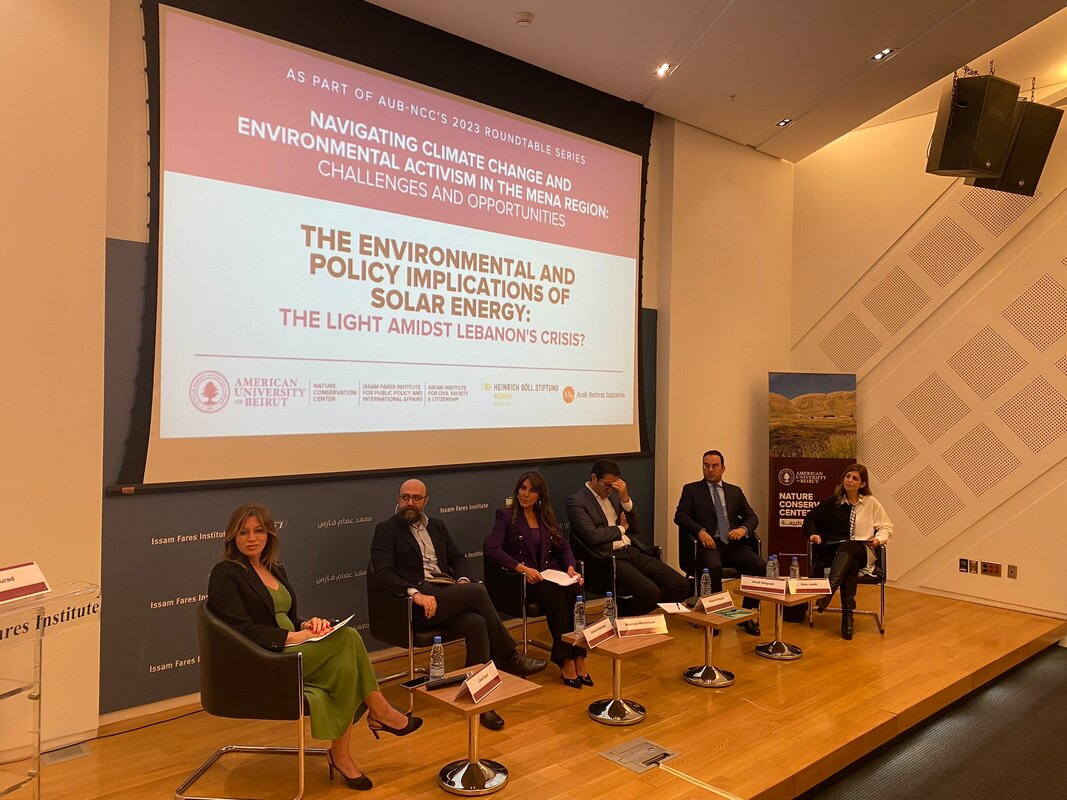|
As part of AUB-NCC's 2023 roundtable series "Navigating Climate Change and Environmental Activism in the MENA Region: Challenges and Opportunities," the Issam Fares Institute for Public Policy & International Affairs (IFI) and the Nature Conservation Center (NCC) at the American University of Beirut, held a panel discussion titled “The Environmental and Policy Implications of Solar Energy: The Light Amidst Lebanon's Crisis?” on May 9. The discussion explored the far-reaching effects of the widespread adoption of solar energy in Lebanon. It covered the pressing need for a comprehensive national policy plan, as well as the drafting of appropriate laws for the recycling of solar panels and batteries. Following opening remarks by IFI Assistant Director and Refugee Research and Policy Program Manager Yara Mourad, Panel discussion gathered Khalil Dinguizli, Associate Director, Head of Lebanon Resident Office – European Bank for Reconstruction and Development (EBRD), Souraya Machnouk, Partner at Abou Joude and Associates Law Firm and Head of the M&A Practice, Vahakn Kabakian, Climate Change Advisor, United Nations Development Programme (UNDP)/ Ministry of Environment, Dalia Jubaili, Member of the Board of Directors of Jubaili Group Holding and Member of AUB-NCC’s Advisory Board, Pierre El Khoury, General Director and President of the Board of the Lebanese Center for Energy Conservation (LCEC), moderated by Carol Ayat, Energy Finance Professional, Investment Banker and IFI Associate Fellow.
Panelists highlighted how the absence of a national strategy to steer the transition to renewable energy has led many households and businesses to install photovoltaic panels without proper monitoring or regulation. Despite the important environmental and policy implications of this trend – including the reduction of greenhouse gas emissions and increased energy security – policies that promote the safe and correct integration of solar energy into the national grid must be implemented. Furthermore, the speakers also covered the reduction in demand for energy intake due to the economic crisis and drop in GDP in Lebanon, which has resulted in compressed consumption and suppressed demand. Finally, the panelists discussed the government's targets to reduce CO2 emissions by 2023 and assessed the little progress made so far in achieving those targets. The experts emphasized the importance of monitoring progress and implementing policies and regulations to ensure that Lebanon can achieve its goals. You can watch the entire panel discussion here. Comments are closed.
|
Archives
July 2024
|

